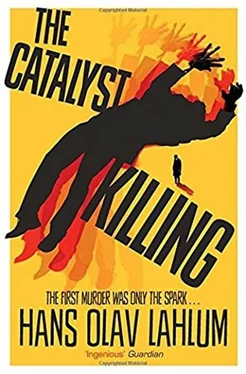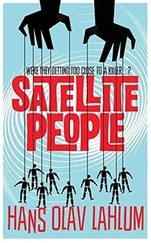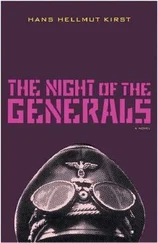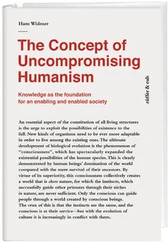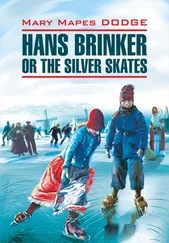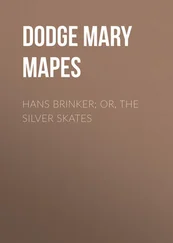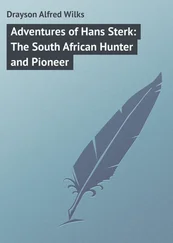Paintings from Norway and Germany hung on the walls between the monumental bookshelves, as well as some photographs from Frans Heidenberg’s childhood and youth in the first decades of the century. I looked around discreetly for signs of other inhabitants in the vast house. My host obviously read my thoughts and shook his head apologetically.
‘I am afraid that only I live here, sadly. The house was built towards the end of the 1930s, when my firm had had its first real success. It was built for a larger family that failed to materialize. I never got married. So now I sit here by myself with plenty of space for my books and paintings.’
He took a pensive sip of coffee.
‘A woman did live here with me once upon a time, in the final months of the war. We were engaged and planned to get married in July 1945. So the war ended at what was a very inconvenient time for me and under very unfortunate circumstances. I was, as you no doubt know, absent for a year and a half. And when I came back, she and all her things were gone. I was forty-six years old and for reasons that I am sure you understand, I was not particularly active in the city’s social life in the years that followed. And there you have it. I gave up any hope of having a family and ceased to be politically active. All my time was given over to saving the firm, which was in a very precarious situation following my absence.’
I stared at him, fascinated. If Frans Heidenberg was still a Nazi, he struck me as being a Nazi with an extremely human face.
‘I know what you are thinking: how could I put myself in that situation? It was in part my strong German roots, but more my fear of Bolshevism that had been stoked by tales of horror from the Russian Revolution in my youth. In the 1930s, I thought that the alternative to a strong Germany ruled by the Nazis was a strong USSR ruled by the Bolsheviks. And I saw the latter as a far greater threat. And I might as well admit that I still do.’
He smiled and shrugged disarmingly.
‘But all that is now well in the past, and I hope that my life today is of little interest to you. I would of course be more than happy to help you to solve your crimes if I could, but I must say that I do not see how that is possible.’
I asked him whether he had heard of Marie Morgenstierne or Falko Reinhardt. He replied without any hesitation that Marie Morgenstierne was unknown to him, other than what he had read in the papers following her ‘unfortunate demise’.
He did, however, to my surprise, admit that the name Falko Reinhardt was familiar to him. He had received a letter from Falko a couple of years before, asking if he would be willing to answer some questions about his role during the Second World War. He had, however, not felt comfortable fraternizing with communists and for his part had no desire to rip open old wounds from the war. He had therefore sent a reply to say that he did not wish to be contacted about the matter. And he had repeated this in a firm and friendly manner when Falko Reinhardt later telephoned him all the same.
He had heard nothing more from the young man. But he did remember the unusual name, and had read about Reinhardt’s disappearance in the newspaper only a few months later. Frans Heidenberg had anticipated that the police might contact him, and therefore ensured that he had a written statement from his two nephews and two other employees to say that he had been at a party with them in Oslo on the night that Falko Reinhardt went missing in Valdres. He placed it on the table in front of me and said that rock-climbing had never been one of his strengths – even less so now than when he was younger, he added with an ironic smile.
When I asked him if he had an alibi for the evening of Marie Morgenstierne’s murder two days before, Frans Heidenberg could regrettably only say that he had been home alone. He found it very hard, however, to see why he would be suspected of killing a woman forty-five years younger than himself whom he had never heard of, let alone met.
I assured him that he was in no way a suspect, but that there were still some routine questions that I had to ask. First, I asked him what his reaction was to the fact that Falko Reinhardt had identified him as a member of a Nazi network during the war, in some papers that he had left behind.
Frans Heidenberg remained calm. He shook his head in exasperation and said that he had had a good deal of contact with like-minded people and friends during the war, of both German and Norwegian descent, but that he had never seen it as a network. And this was not indicated in any way in the police investigation after the war. He felt that his sentence had been harsh given that his only sins were being a member of the NS and other symbolic actions, but that he had long since forgiven his countrymen and put the matter behind him.
Frans Heidenberg had known both Marius Kofoed and Lars Roden, and was still on friendly terms with Christian Magnus Eggen. But he had not felt that he was part of any sort of political network during the war, and even less so afterwards. He did not recognize the description of a secret network, and was somewhat dubious that a young communist today would know better than he had at the time. When I mentioned Henry Alfred Lien, he thought about it for a while and then shook his head; no, he could not recall meeting anyone of that name.
In response to my question regarding his political views today, Frans Heidenberg replied that he had been a member of the Farmers’ Party for a few years after the war, but had then stopped his membership as he was not happy with the direction that the party was taking. He had not been politically active since the war, and in public he was now a man with no political views. Which party he voted for and any thoughts and opinions he might have on political issues were private matters, were they not?
I had to concede that the eloquent and relaxed Frans Heidenberg was right on this point, and did not ask any more questions. I thanked him for the information and reserved the right to contact him again later, should that be necessary. He continued to play the role of an exemplary host by assuring me that protectors of the law were of course welcome to contact him at any point, but he unfortunately doubted that he could be of any more help.
At the front door, Frans Heidenberg suddenly and unexpectedly asked me if Christian Magnus Eggen was also on my list of people to contact. I saw no reason to deny this, as Eggen had already been told that I was coming. Heidenberg nodded in understanding. He added that he should then warn me that my meeting with him might be rather different. He had been friends with Eggen since they were students, and thought of him as highly intelligent and a good person. But they were very different in both temperament and nature. Eggen undoubtedly felt more strongly that he had been treated unfairly after the war, and could ‘quickly become extremely frank and vehement’ when he spoke about it, he added.
I thanked him for the warning and wished Frans Heidenberg a good day. He tipped the hat he was not wearing, and opened the door for me. I left him with the feeling that I had indeed met a humane Nazi. I could see no connection between him and Marie Morgenstierne’s death. I did, however, note that Frans Heidenberg did not have an alibi for the evening she was murdered. And that there was an elegant walking stick with a silver head just by his front door.
Christian Magnus Eggen’s house was more traditional in style than Frans Heidenberg’s, but as good as equal in size. The difference between the two owners, however, could not have been greater.
The white-haired Christian Magnus Eggen was rounder in shape, but from the outset appeared to have much sharper edges. His hand was firm, bony and twitchy, and his voice tense. Judging by his spectacles, the man was very short-sighted, but his eyes felt like gimlets. I was invited into the living room, but not offered anything to drink. And Christian Magnus Eggen was giving his answers before I had asked a single question.
Читать дальше
